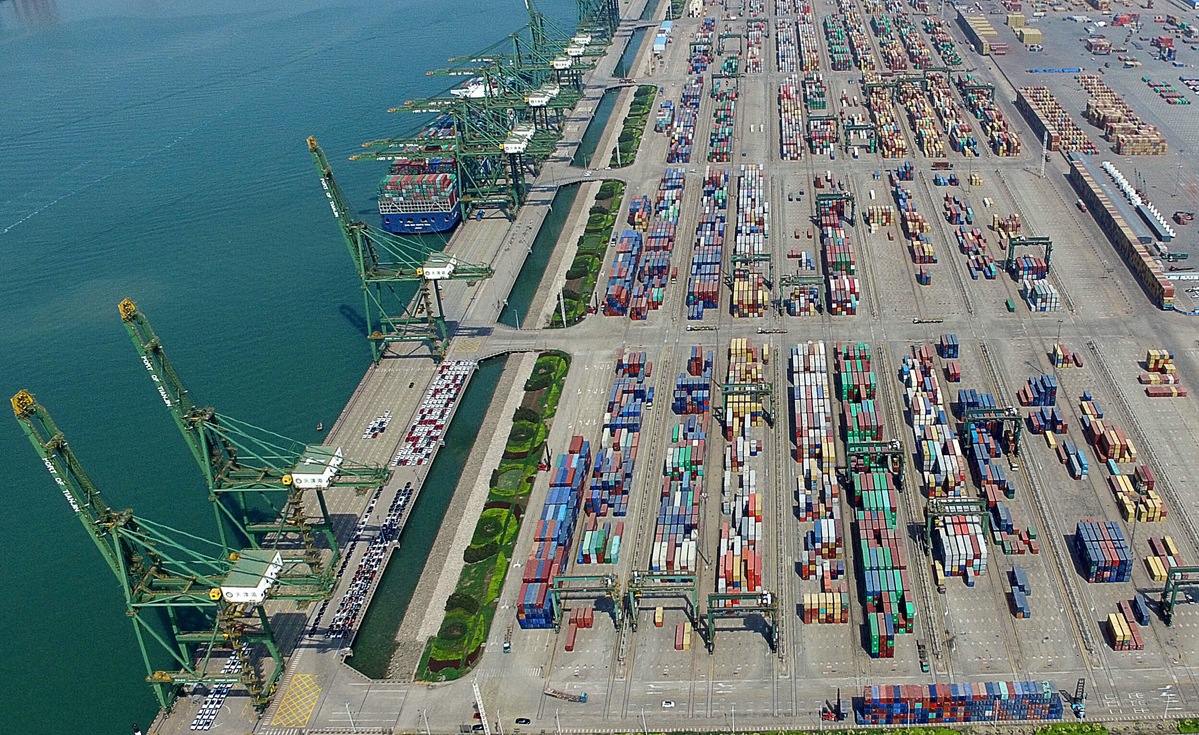Free trade zones buoy work restarts of firms


Targeted policies enacted by FTZs in the nation yield tangible results
Key free trade zones in China have played a key role in furthering production restarts of companies since the start of the COVID-19 pandemic and helped stabilize foreign trade and investment, officials said on Tuesday.
This year marks the fifth anniversary of the establishment of FTZs in Guangdong province, Tianjin and Fujian province. Five years on, the FTZs have made several significant advances, the officials said.
Tang Wenhong, director-general of the department of pilot free trade zones and free trade ports at the Ministry of Commerce, said China's FTZs have been working on COVID-19 prevention and control efforts, while promoting economic and social development.
The FTZs have also focused on assisting enterprises in work and production restarts. These measures include helping employees return to work, cutting taxes and fees and ensuring medical supplies, said Tang.
The zones in Guangdong province, Tianjin, and Fujian province have carried out targeted policies and achieved positive progress in facilitating the companies' orderly production restarts, he said.
Zhang Zhongdong, deputy director of Tianjin FTZ's administration office, said a core task for the FTZs under institutional innovation was to promote the coordinated development of the Beijing-Tianjin-Hebei region.
A series of measures have been implemented and achieved tangible results. According to Zhang, the zone has committed to helping companies in Beijing, Tianjin and Hebei province with their overseas expansion and boost high-quality economic growth in the region.
Zheng Jianrong, director of the Guangdong FTZ's administration office, said the Guangdong pilot FTZ has promoted interconnection with the Guangdong-Hong Kong-Macao Greater Bay Area and is building an international trade hub that can coordinate with international and domestic markets.
According to Zheng, by the end of last year, 250 international trade routes were opened in the province. From January to March this year, the total trade volume of enterprises registered in the Guangdong FTZ amounted to 82.694 billion yuan ($11.6 billion), up by 33.94 percent on a yearly basis.
Since 2013, China has established 18 free trade zones around the country. Thanks to the preferential policies, the zones have attracted a large number of foreign companies.
Tang said with more uncertainties affecting the global economy, the pilot FTZs will help prevent and control the contagion, be at the forefront of expanding opening up, and provide more support for foreign companies to develop in China. The zones will also look to create a more open and transparent business environment, he said.
A State Council executive meeting in March adopted new measures to maintain stability in foreign trade and investment and mitigate the impact caused by the novel coronavirus outbreak.
The meeting underlined the importance to implement the decisions made by the CPC Central Committee and the State Council to advance both the epidemic control, and economic and social development. It called for continued commitment to wider opening-up and decided on multipronged measures to keep foreign trade and investment stable.



































